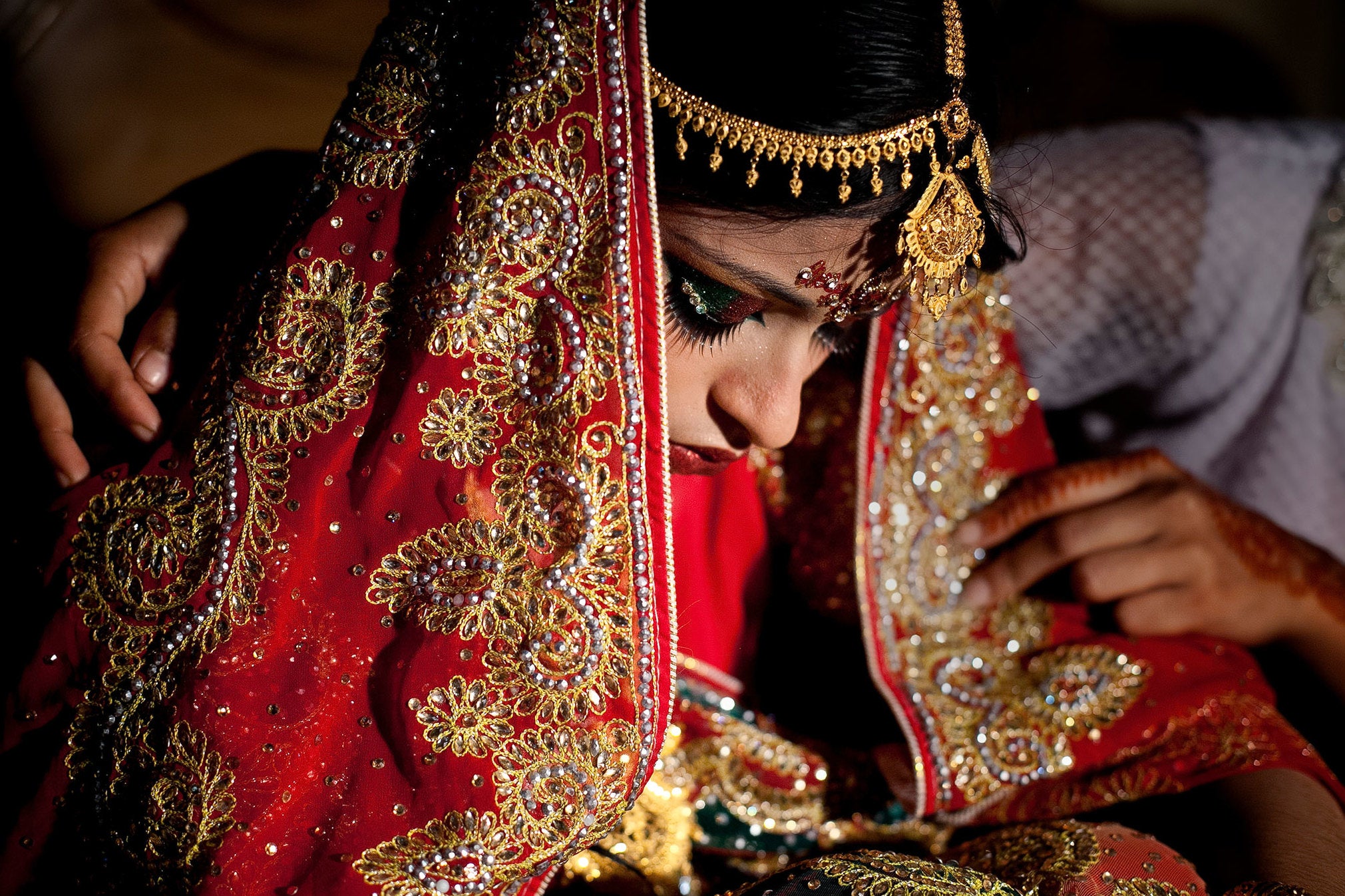Bangladesh child marriage: New law will 'reduce minimum marital age to zero'
Campaigners say loophole introduced by new bill could see victims forced to marry rapists

Your support helps us to tell the story
From reproductive rights to climate change to Big Tech, The Independent is on the ground when the story is developing. Whether it's investigating the financials of Elon Musk's pro-Trump PAC or producing our latest documentary, 'The A Word', which shines a light on the American women fighting for reproductive rights, we know how important it is to parse out the facts from the messaging.
At such a critical moment in US history, we need reporters on the ground. Your donation allows us to keep sending journalists to speak to both sides of the story.
The Independent is trusted by Americans across the entire political spectrum. And unlike many other quality news outlets, we choose not to lock Americans out of our reporting and analysis with paywalls. We believe quality journalism should be available to everyone, paid for by those who can afford it.
Your support makes all the difference.Bangladesh has been accused of taking a “devastating step backwards” in the fight against child marriage by introducing a legal loophole that sets no age limit for wedlock.
The Child Marriage Restraint Bill keeps the legal age of marriage as 18 for women and 21 for men but introduces exceptions in “special cases” or for in the “best interests” of the adolescent.
Campaigners say the law effectively sets the marriageable age at zero but supporters of the law, which needs presidential approval before coming into effect, say courts will prevent abuse by assessing applications.
There are fears the orders could be used to force victims of sexual abuse or pregnant rape victims to marry their abusers.
The Girls Not Brides group said no examples of “special cases” had been given that would make child marriage acceptable, saying other measures such as protecting education and providing economic opportunities for girls would better serve their futures.
Campaigners said the changes to the law would effectively mean that Bangladesh has a “zero minimum age of marriage”.
“We are concerned that this new act could lead to widespread abuse, legitimise statutory rape, allow parents to force their girls to marry their rapists, and further encourage the practice of child marriage in a country with one of the highest child marriage rates in the world,” said a statement.
“The need to protect the 'honour' of girls who have become pregnant was widely cited by the Bangladesh government as the reason for this provision. However marriage is not the best way to protect adolescent girls and exposes them to greater harm.”
Campaigners called on the government to focus on tackling the root causes of child marriage in Bangladesh, as well as healthcare, sex education, contraception and childcare issues.
The country has the second-highest rate of child marriage in the world, with 52 per cent of Bangladeshis married by the age of 18, and 18 per cent of those by the time they turn 15, according to Unicef.
Edouard Beigbeder, the agency’s representative for Bangladesh, said underage marriage increases maternal mortality rates, birth complications, the chances of domestic violence and diminishes girls’ chance to stay in education by forcing them into a life of servitude and dependence.
“A few years ago about 66 per cent of Bangladeshis had a child marriage but this figure has gone down so there’s a reasonable decline,” he told The Independent.
“We are concerned that this law could be misused and worsen the problem that we are seeing in Bangladesh.”
Human Rights Watch (HRW) is among the other organisations objecting to the law, which it called a “devastating step backward for the fight against child marriage”.
“Nothing can change the fact that this is a destructive law,” said Heather Barr, a senior researcher on women’s rights. “But carefully drafted regulations can mitigate some of the harm to girls.”
The group said Bangladesh’s previous attempt to set 18 as an age limit for girls had been “widely ignored” and pledges to end marriage for under-15s by 2021 were coming to nothing.
HRW called for social workers to be assigned to each application and for judges to ensure girls been offered comprehensive services and advice, as well as interviewing them without relatives present to ensure they are not a victim of coercion or abuse.
The law won the backing of the Bangladeshi parliament last month but will not be finalised until Sunday, when the government will make any amendments.
Meher Afroze Chumki, the state minister for women and children’s affairs, said officials would confirm the exact details of what would constitute “special provisions”.
“We will increase the jail time for anyone found violating or abusing this law and also suspend the any marriage officiator found guilty of conducting illegal child marriages,” she added, according to the Dhaka Tribune.
Join our commenting forum
Join thought-provoking conversations, follow other Independent readers and see their replies
Comments